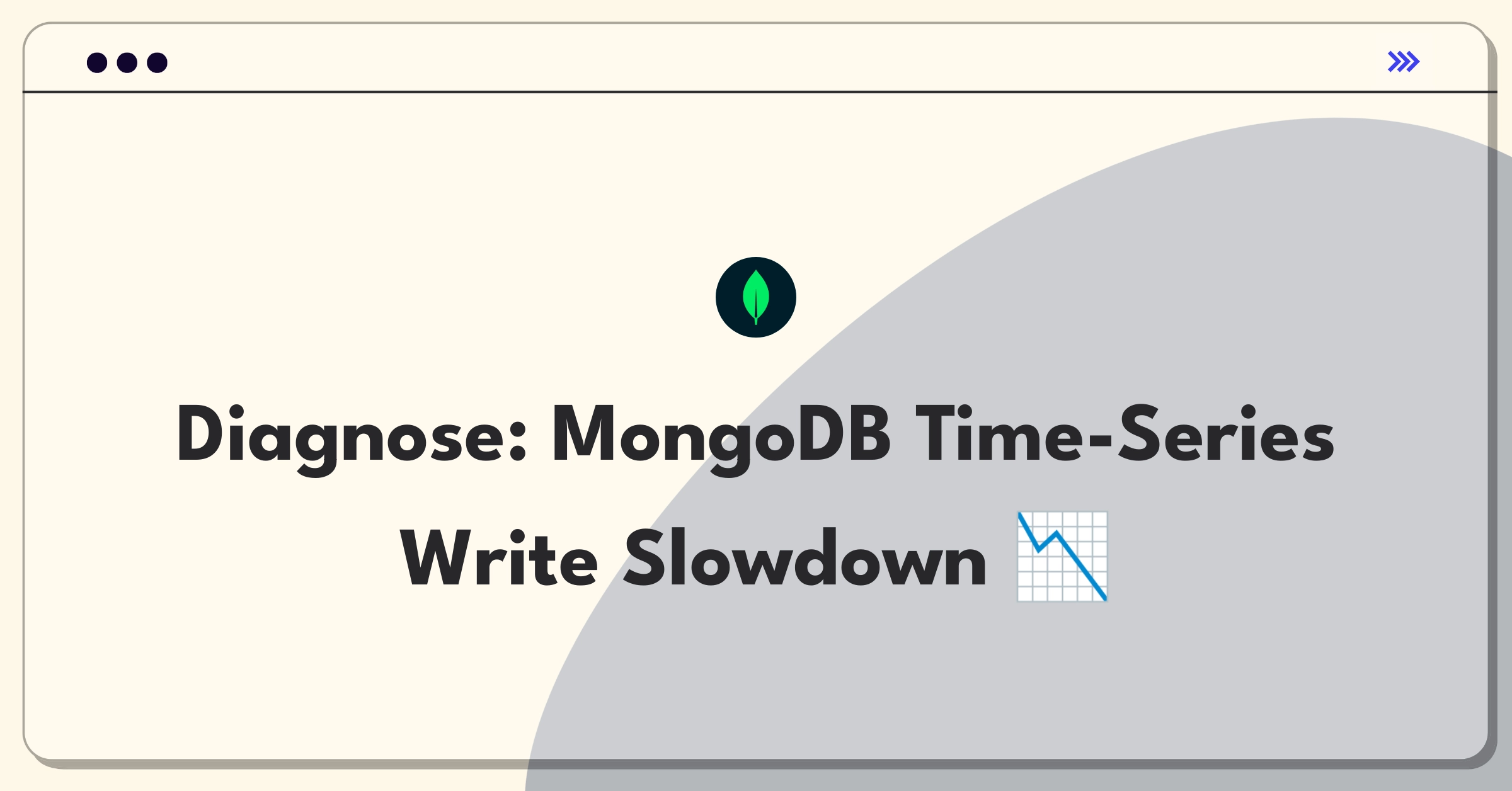Introduction
The recent 25% decrease in document writes per second for MongoDB's time-series collections over the past 48 hours is a critical issue that demands immediate attention. This performance degradation could significantly impact our users' ability to store and analyze time-series data efficiently. I'll approach this problem systematically, focusing on identifying the root cause, validating hypotheses, and developing both short-term fixes and long-term solutions.
Framework overview
This analysis follows a structured approach covering issue identification, hypothesis generation, validation, and solution development.
Step 1
Clarifying Questions (3 minutes)
Why it matters: Recent changes often correlate with performance issues. Expected answer: Yes, there was a minor update to the database configuration. Impact on approach: If confirmed, we'd focus on rollback options and change management processes.
Why it matters: Helps identify if the issue is time-dependent or constant. Expected answer: The decrease is more significant during peak usage hours. Impact on approach: Time-dependent issues might point to capacity problems or specific workload types.
Why it matters: Unusual data patterns could strain the system. Expected answer: No significant changes in client base or data volumes. Impact on approach: If true, we'd focus more on internal system issues rather than external factors.
Why it matters: Infrastructure changes can have cascading effects on database performance. Expected answer: No major infrastructure changes reported. Impact on approach: If confirmed, we'd shift focus to database-specific issues rather than broader infrastructure problems.
Subscribe to access the full answer
Monthly Plan
The perfect plan for PMs who are in the final leg of their interview preparation
$99 /month
- Access to 8,000+ PM Questions
- 10 AI resume reviews credits
- Access to company guides
- Basic email support
- Access to community Q&A
Yearly Plan
The ultimate plan for aspiring PMs, SPMs and those preparing for big-tech
$99 $33 /month
- Everything in monthly plan
- Priority queue for AI resume review
- Monthly/Weekly newsletters
- Access to premium features
- Priority response to requested question


.png)